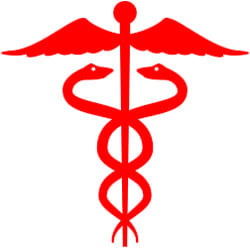The Benefits of Zinc
Zinc is a trace mineral, which means you only need a very small amount of it every day. You can get this essential nutrient by eating a balanced diet, but sometimes you might need to take a zinc supplement.
Impact of Zinc on Your Health
Your body need zinc t function properly. If you don't get enough, you could develop health problems. Your body uses zinc to do the following:
* Heal wounds
* Support the function of the immune system
* Develop the reproductive system
* Develop your sense of taste and smell
* Produce and store insulin
* Help your thyroid and metabolism work properly.
* Make proteins and DNA.
Zinc has also been shown in some studies to improve the following conditions:
* Common cold
*Diarrhea
* Age -related macular degeneration
Most people get enough zinc from the food they eat. The following groups are at risk for zinc deficiency:
* People with digestive disorders, like Crohn's disease and ulcerative colitis. The body can't often absorb zinc when experiencing these conditions.
* People who follow a vegetarian diet. Meat is a good source of zinc, and vegetarian protein sources like legumes can prevent zinc from being absorbed.
* Infants older than 6 months who breastfeed. Breast milk doesn't have enough zinc for a baby over 6 months. Adding another source of zinc to their diet is necessary. Formula usually contain enough zinc for older infants.
Some Sources of Zinc:
* Oyster, crab, lobster
* Red meat
*Pork
* Chicken and other poultry
* Nuts, whole and beans
* Dairy products
* Fortified foods , like cereals.
Signs of Zinc Deficiency:
* Delayed growth
* Delayed sexual development
* Impotence in men
* Hair loss
* Sore skin and eyes
* Delayed wound healing
* Weight loss
* Decreased appetite.
Zinc Toxicity:
* Nausea
* Vomiting
* Headaches
* Little or no appetite
* Stomach cramps and indigestion
The upper zinc dosage per day is 40 milligrams/day foe adults. If you take more zinc than you should period, you can have low copper levels which can destroy your nervous system.
Credit: WebMD
Zinc is a trace mineral, which means you only need a very small amount of it every day. You can get this essential nutrient by eating a balanced diet, but sometimes you might need to take a zinc supplement.
Impact of Zinc on Your Health
Your body need zinc t function properly. If you don't get enough, you could develop health problems. Your body uses zinc to do the following:
* Heal wounds
* Support the function of the immune system
* Develop the reproductive system
* Develop your sense of taste and smell
* Produce and store insulin
* Help your thyroid and metabolism work properly.
* Make proteins and DNA.
Zinc has also been shown in some studies to improve the following conditions:
* Common cold
*Diarrhea
* Age -related macular degeneration
Most people get enough zinc from the food they eat. The following groups are at risk for zinc deficiency:
* People with digestive disorders, like Crohn's disease and ulcerative colitis. The body can't often absorb zinc when experiencing these conditions.
* People who follow a vegetarian diet. Meat is a good source of zinc, and vegetarian protein sources like legumes can prevent zinc from being absorbed.
* Infants older than 6 months who breastfeed. Breast milk doesn't have enough zinc for a baby over 6 months. Adding another source of zinc to their diet is necessary. Formula usually contain enough zinc for older infants.
Some Sources of Zinc:
* Oyster, crab, lobster
* Red meat
*Pork
* Chicken and other poultry
* Nuts, whole and beans
* Dairy products
* Fortified foods , like cereals.
Signs of Zinc Deficiency:
* Delayed growth
* Delayed sexual development
* Impotence in men
* Hair loss
* Sore skin and eyes
* Delayed wound healing
* Weight loss
* Decreased appetite.
Zinc Toxicity:
* Nausea
* Vomiting
* Headaches
* Little or no appetite
* Stomach cramps and indigestion
The upper zinc dosage per day is 40 milligrams/day foe adults. If you take more zinc than you should period, you can have low copper levels which can destroy your nervous system.
Credit: WebMD
